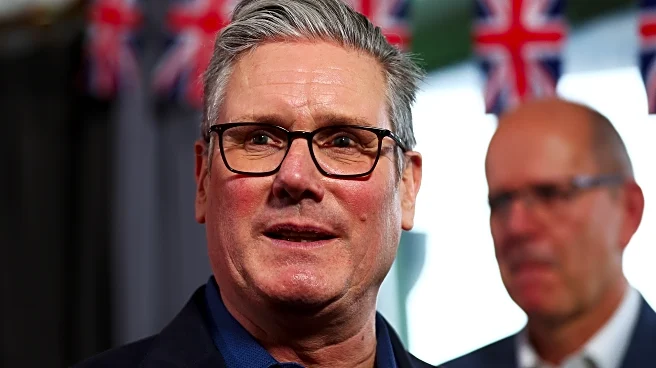What's Happening?
The Center for Media at Risk at the Annenberg School for Communication recently hosted a talk focusing on self-censorship and harassment in the media industry. Led by Arwa Mahdawi, a visiting practitioner and columnist for The Guardian, the event titled
'Networked Incitement and the New Politics of Censorship' explored the challenges journalists face, particularly in reporting sensitive topics like the Israel-Hamas conflict. Mahdawi shared her experiences with harassment, highlighting the impact of organizations like Camera UK, which she claims targets journalists. She noted that such harassment creates a chilling effect in newsrooms, affecting how topics like genocide are covered. The talk also included case studies of journalists from India and Australia who faced similar harassment, leading to their dismissal from jobs. Mahdawi emphasized that these practices deter individuals from pursuing journalism.
Why It's Important?
The discussion at the Center for Media at Risk underscores the growing concern over self-censorship and harassment in journalism, which can significantly impact media freedom and the quality of reporting. As Mahdawi pointed out, the chilling effect of harassment can lead to cautious reporting, particularly on controversial issues, potentially skewing public perception and discourse. This is crucial in a democratic society where free speech and a free press are foundational. The event highlights the need for media organizations to develop strategies to protect journalists from harassment and ensure robust reporting. The broader implications affect public policy and societal understanding, as media plays a critical role in informing citizens and shaping public opinion.
What's Next?
Arwa Mahdawi plans to create a 'playbook' for media outlets to follow when their journalists face harassment, aiming to provide a structured response to such challenges. This initiative could help media organizations better support their staff and maintain journalistic integrity. Additionally, Mahdawi intends to conduct a quantitative study to further understand the impact of harassment on media coverage. These efforts may lead to increased awareness and policy changes within media organizations, fostering a safer environment for journalists to report on sensitive issues without fear of reprisal.
Beyond the Headlines
The event at the Center for Media at Risk also touches on the ethical dimensions of journalism, particularly the responsibility of media outlets to protect their reporters and ensure unbiased coverage. The discussion raises questions about the balance between editorial independence and external pressures, highlighting the need for media literacy and public awareness about the challenges journalists face. Long-term, these conversations could influence cultural shifts in how media harassment is perceived and addressed, potentially leading to stronger protections for journalists globally.

















